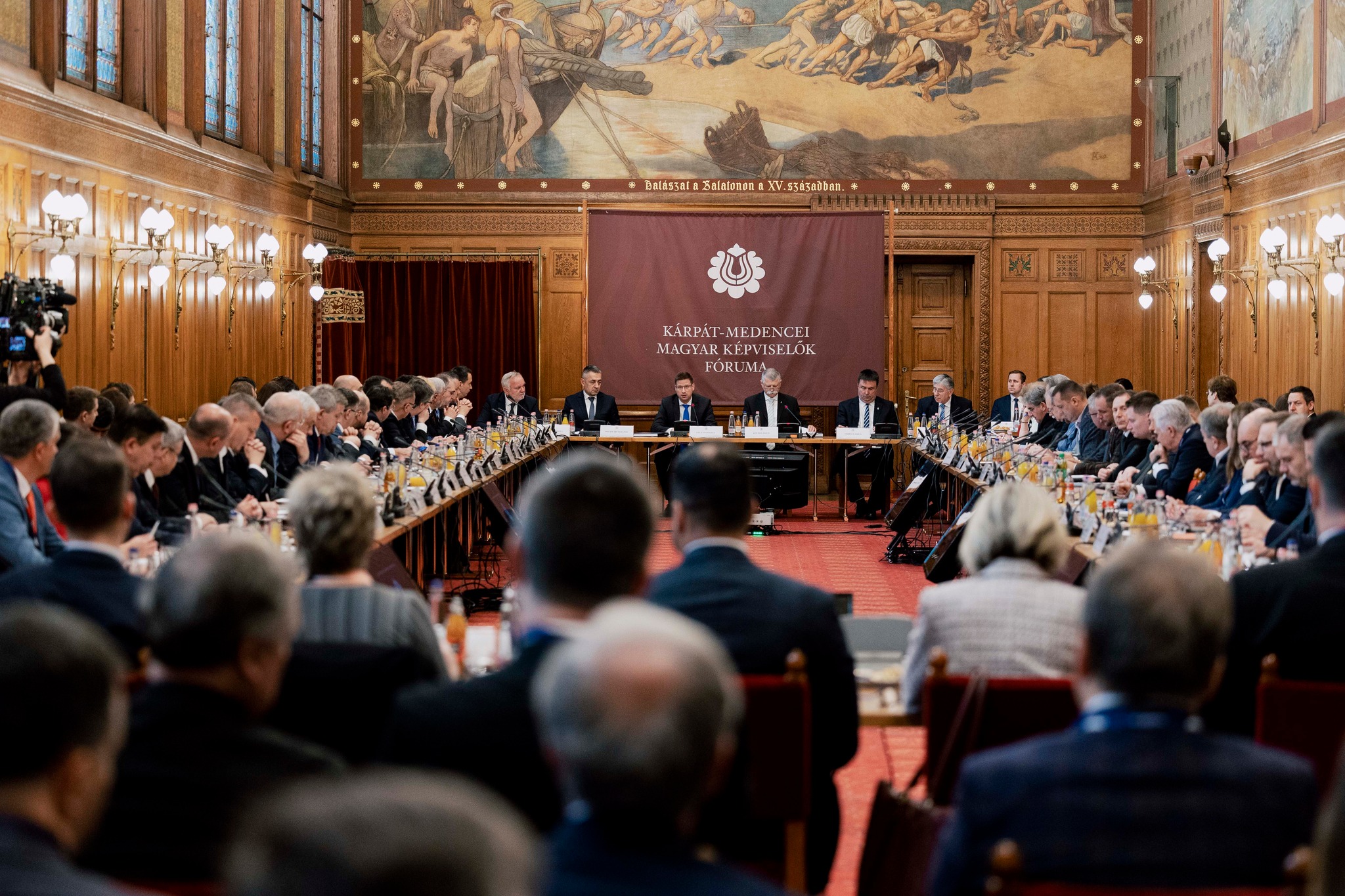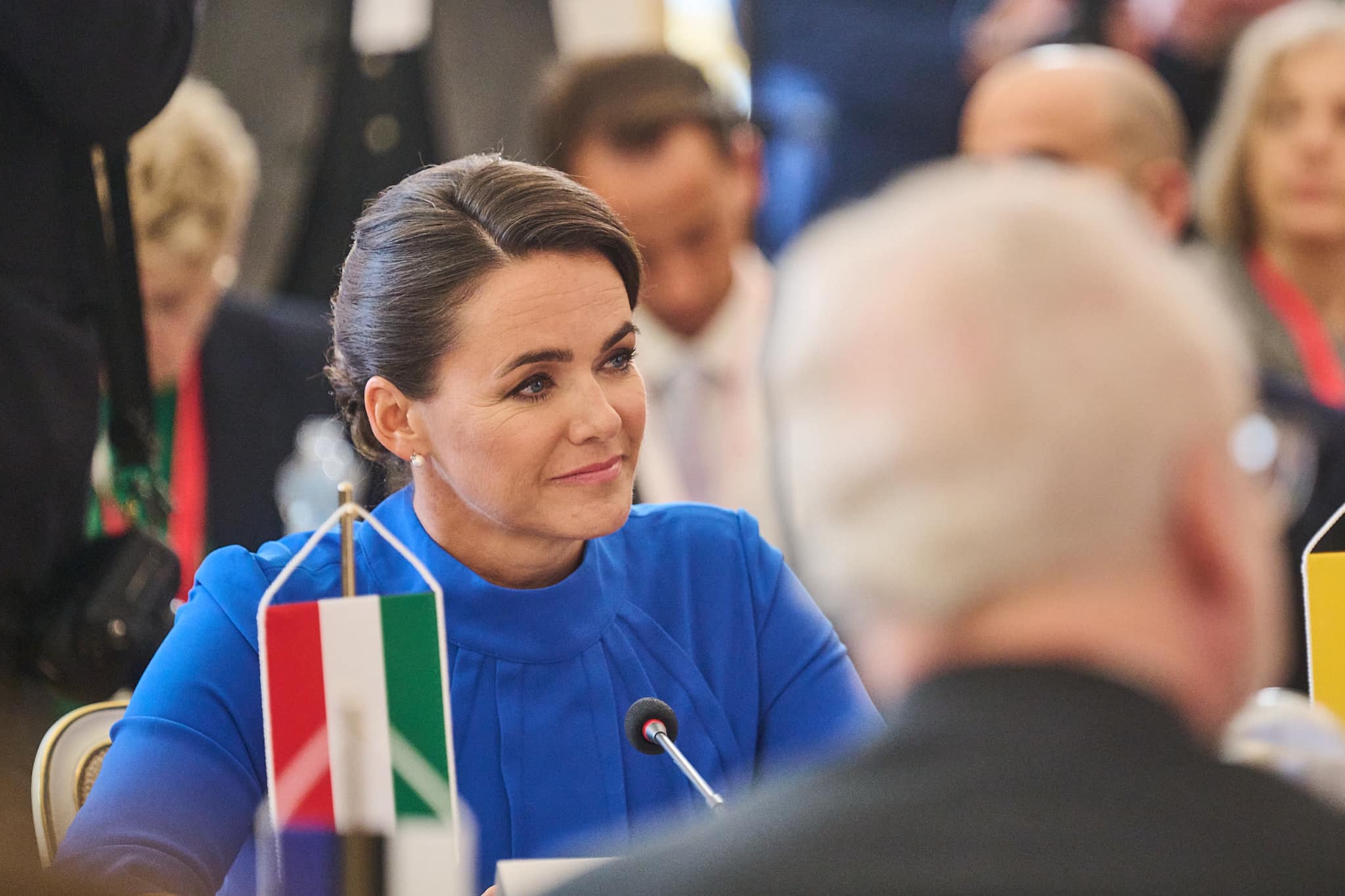
We expect Ukraine to restore the individual and community rights that it has removed since 2015, Minister Gergely Gulyás said.Continue reading

The Swiss newspaper Neue Zürcher Zeitung published an interview with President Katalin Novák on Thursday entitled “Sanctions have hurt us more than Russia.” The head of state touched on issues including the Kosovo crisis, EU enlargement, energy, and relations with the United States.
On the Kosovo crisis, Katalin Novák said that while the attention is focused on Ukraine, the Western Balkans should not be forgotten and that the accession of the countries of the region to the EU should be accelerated. According to her, there are signs of enlargement-fatigue in Western Europe, but the candidate status of Ukraine and Moldova means that anything is possible with the right political will.
Asked whether Serbia’s rule of law situation did not meet EU requirements, the President highlighted that there were objective conditions for membership, especially in the economic field, but the rule of law was “much more subjective.” She added that
more attention should be paid to values, as Serbs live according to European values and way of life and are culturally very close to us.”
On the situation of European values in Ukraine, Novák said that new laws that violate the rights of minorities, including Hungarians, are a step backwards. Minority rights are part of the essence of the European community, and the issue of legislation is therefore “not just a bilateral problem,” adding that there are currently no signs of positive changes.
The President said that she agrees with supporting Ukraine, but fears that military support will fuel the flames of war. Heavy weaponry for offensive operations can “quickly lead to escalation,” but “it is different when it comes to protecting the population.” She stated that Hungary would continue to maintain its position of not allowing the transfer of weapons to Ukraine, just as Switzerland does.
On energy relations with Russia, she stressed that she is in favor of “making ourselves as independent as possible from Russian gas and oil, but it will take time.” On the expansion of the Hungarian Paks nuclear power plant, she added that nuclear energy was needed to supply electricity, and that western companies Siemens and Framatome/Westinghouse were involved in the project alongside Russia’s Rosatom.
On the future of Hungarian-Russian relations, Novák emphasized that the framework for relations is that “Hungary is a member of the EU and NATO, and this will not change.”
Regarding the relationship with the EU and the US, she stressed that “foreign actors are strongly interfering in Hungary’s internal affairs” and “trying to change the political leadership and our Christian-conservative line,” but everyone should take note that the government was democratically elected.
On criticism regarding the rule-of-law, Novák underlined that “criticism is justified when we break the law,” but it is often a mere assessment of circumstances, which varies from country to country.
Here, however, I am also self-critical: perhaps sometimes we do not explain precisely enough abroad what the Hungarian position is and what its socio-cultural context is,”
the President added.
According to her, when it comes to the rule of law mechanism, “the implementation is questionable, often ridiculous,” as new conditions are always imposed after the initial ones are met, which violates Hungary’s sovereignty and threatens to “lose the clear support of Hungarians for the EU.”
Finally, on her own role, the Hungarian President said: “I use my office and my influence to improve our relations with Europe. I believe in European cooperation, even if the institutions sometimes go in the wrong direction.”
Featured photo via Facebook/Katalin Novák